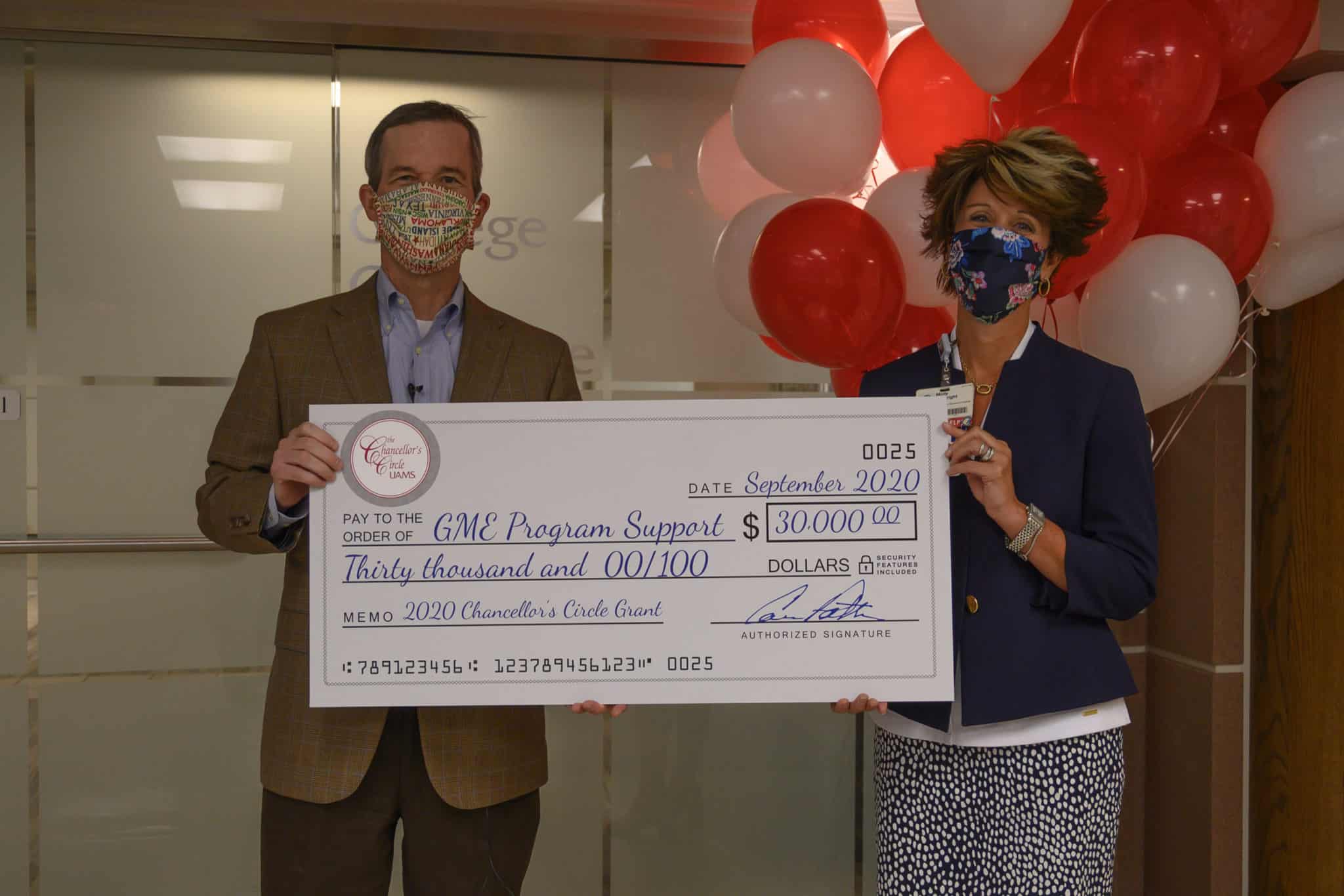Chancellor’s Circle Spotlight: Graduate Medical Education
| The Office of Graduate Medical Education (GME) in the UAMS College of Medicine has an important task: educating and training hundreds of residents and fellows so they can take up needed positions across the state as physicians and specialists.
As the state continues to adjust to the COVID-19 pandemic, it’s clear that quality physicians are needed now more than ever, especially in rural areas.
This year, Chancellor Cam Patterson, M.D., MBA, and UAMS Health CEO, awarded a Chancellor’s Circle grant of $30,000 to support the Pathway to Program Excellence Initiative for ongoing education efforts directed at UAMS residency and fellowship programs. The initiative will help the GME office maintain accreditation standards and develop quality fellowship and residency training programs to continue producing excellent physicians.
The Chancellor’s Circle includes those donors who support programs at UAMS through annual contributions of $1,500 or more. More than 200 household and corporate members make up the Chancellor’s Circle. The Chancellor’s Circle was created in 1984 by the UAMS Board of Advisors and has raised more than $9 million to support UAMS’ mission.
“The Chancellor’s Circle grant award is so important because it allows us to support our internal GME residency programs as well as our community partners and UAMS affiliates across the state,” said Molly Gathright, M.D., associate dean for graduate medical education.
The first training sessions were held virtually in October.
The College of Medicine GME office is responsible for educating and training more than 650 residents and fellows at UAMS representing 63 residency and fellowship programs. Residency training is required for licensure, and residents are statistically more likely to practice in communities near where they completed training.
A medical resident is a physician pursuing up to seven years of specialized training, and a fellow is a physician pursuing additional specialty training after completing a residency.
The Chancellor’s Circle grant will help the GME office provide the support that programs need to maintain a strong physician pipeline in Arkansas.
UAMS has set a goal to increase residency positions in Arkansas by 200 slots over the next 10 years, with at least 50% of these spots in primary care. The institution is working with numerous health systems and hospitals, communities and leaders to develop new residency programs.
More than two-thirds of Arkansas’ 75 counties include federally designated Primary Care Health Professional Shortage Areas. Primary care physician shortages are expected to increase substantially as the state’s population continues to age and require more medical care, and as more Arkansans seek primary care services.
In addition to this training initiative, the GME office provides resources for residents, including a comprehensive curriculum repository and tips on tracking professional milestones. There are also multiple trainings available on the more human elements of their profession, such as breaking bad news, understanding social determinants of health and managing fatigue.
For more information on Graduate Medical Education, visit gme.UAMS.edu. To make a donation, visit giving.UAMS.edu.
